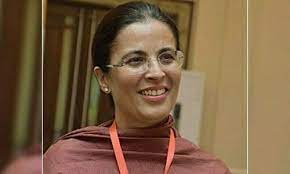The Sukkur circuit bench of the Sindh High Court has directed Khairpur SSP to probe allegations of sexual harassment of female students at the Shah Abdul Latif University and expressed shock at the report that teachers have been hired for a paltry sum of Rs15,000 a month to teach students at the university.
The double bench comprising Justices Salahuddin Panhwar and Abdul Mubeen Lakho passed the orders the other day on petitions filed against dual jobs of an associate professor, irregularities in the appointment of substitute teachers and allegations of sexual harassment of female students at the university.
Justice Panhwar expressed shock when he learnt that teachers had been hired for as little Rs15,000 a month to teach higher studies at the university. “Is it a university or a primary school?” he asked, adding that the issue of hiring of 100 teachers for a paltry salary constituted a criminal case.
He ordered the university’s vice chancellor to fill vacant posts as per conditions of the Higher Education Commission in a transparent manner.
The justices directed the Khairpur SSP to probe allegations of harassment of female students, establish an anti-harassment cell at the entrance to the university and depute a female inspector to head the cell.
Court shocked over reports the varsity hired teachers for only Rs15,000 a month
They ordered the officer to ensure security of female students on their way to the university from their homes and hostels and directed that the Khairpur district and sessions judge should depute a female magistrate to pay visits to girls’ hostels at the university to check if the female students were harassed. A quarterly report on the issue should be submitted to the court, they said.
The court authorised the female magistrate to direct police official concerned to take legal action, if she found any crime related to harassment of female students.
Justice Panhwar asked the vice chancellor as to how private teachers hired for just Rs15,000 a month could teach students at the university and noted that merit was neglected in the appointment. “Everyone acted as kings at the university,” he observed.
Salu vice chancellor Dr Khaleel Ahmed Ibupoto said that he too was opposed to the appointment of teachers for such paltry pay but it was in practice at other universities as well, including Sindh University.
The bench noted in its decision that around 90 teaching associates were appointed without placing advertisement in newspapers and they were drawing only Rs15,000 per month. They were delivering lectures to students of different categories as substitute lecturers, associate professors and professors as stopgap arrangement, it said.
The judges observed in the order that the practice was not permissible under the Universities Act nor the High Education Commission, hence the Salu vice chancellor would ensure that all vacant posts were filled through advertisement in a transparent manner.
Furthermore, screening test would be outsourced to an independent and reputable third party testing agency and the number of teaching associates would be gradually reduced within three months.
During the hearing Justice Panhwar suspended promotion of associate professor Tariq Hussain Bhatti and demoted him to the post of lecturer.
The bench ordered constitution of a committee to be headed by Ghulam Raza Bhatti, vice chancellor of Sheikh Ayaz University, Shikarpur and Khalil Ahmed Ibupoto, VC of Shah Abdul Latif University and Zahid Hussain Khund, VC of Arror University and a representative of HEC not below the rank of DG as members to decide the fate of the appointment and promotion of the petitioner and associate prof Tariq Hussain Bhatti.
Source: Dawn





